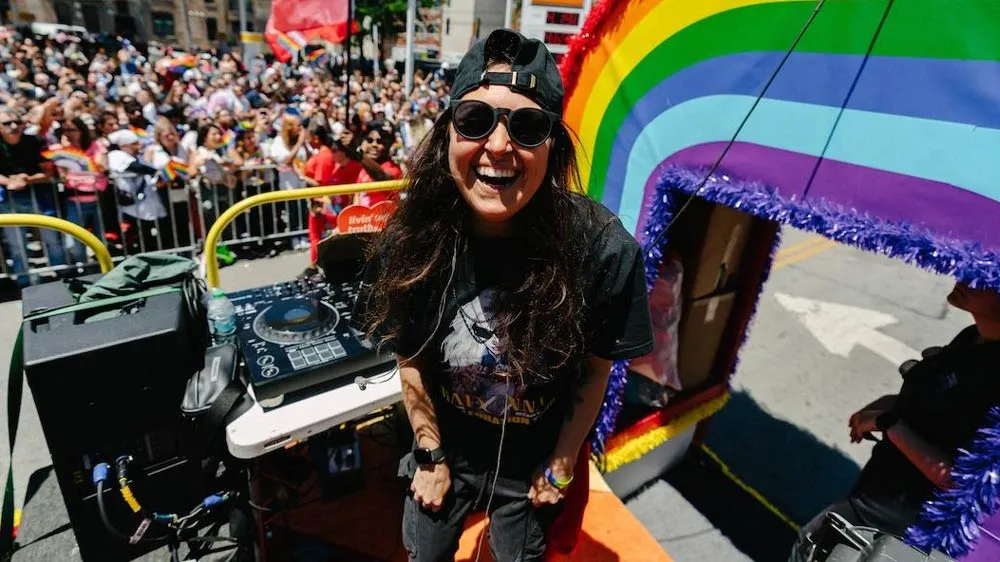June 27, 2012
Pentagon Holds Gay Pride Event
Jason St. Amand READ TIME: 3 MIN.
WASHINGTON (AP) - In the course of a year, Marine Capt. M. Matthew Phelps says he went from being a gay man "in the closet," afraid of being discharged, to invitee at the White House gay pride reception, drinking champagne with his commander in chief.
Phelps told his story Tuesday at the Pentagon's first-ever event to recognize the service of gay and lesbian troops. The historic event came nine months after repeal of the 18-year-old "don't ask don't tell" policy that had prohibited gay troops from serving openly and forced more than 13,500 service members out of the armed forces.
"Last June ... I was at a point in my career that if anyone had found out that I was gay ... I could have lost my job," Phelps told some 400 uniformed and civilian Defense Department employees packed into a Pentagon auditorium.
"A year later ... I, Capt. Matthew Phelps, was invited to attend this pride reception at the White House," Phelps said of the June 15 reception hosted by President Barack Obama. "And I thought how amazing is it over the course of a year, I could go from being fired for being who I am, to having champagne with the commander in chief - on cocktail napkins with the presidential seal on it."
Phelps appeared on a panel of current and former service members, some of whom told of their experiences before the repeal of "don't ask don't tell" and how life is different now. The audience filled the seats and dozens more stood along the walls, roughly 1 in 5 were in uniform and the rest civilians who had not been subject to the old policy.
"For those service members who are gay and lesbian, we lifted a real and personal burden from their shoulders," top Pentagon lawyer Jeh Johnson said in a speech opening the event that lasted about an hour and a half. "They no longer have to live a lie in the military" or "teach a child to lie to protect her father's career."
Before the repeal, gay troops could serve but could be discharged if they revealed their sexual orientation. At the same time, a commanding officer was prohibited from asking a service member whether he or she was gay.
"For all of us, we should honor the professional and near-flawless manner in which our entire U.S. military implemented and adapted to this change," Johnson said of the months since repeal.
Although some had feared repeal would cause problems in the ranks, officials and gay advocacy groups say there have been a few isolated incidents but no big issues - aside from what advocacy groups criticize as slow implementation of some changes, such as benefit entitlements to troops in same-sex marriages.
Defense Secretary Leon Panetta said last month that military leaders had concluded that repeal had not affected morale or readiness. A report to Panetta with assessments from the individual military service branches said that as of May 1 they had seen no ill effects.
An argument against open service for years had been that acknowledging the presence of gays would hurt unit cohesion, which is military talk for the sense of being part of a team that works well together.
Phelps argued Tuesday that repeal did just the opposite - improved unit cohesion. He said that hit home for him during a 2007 deployment to Iraq.
"Every Saturday night, the officers used to get together and smoke cigars and watch movies," he said. "Of course, their thoughts would all drift to home and everyone would talk about their families and their wives and the letters that they got from their kids - and I sat the in the back of the room not talking to anybody.
"Not only was it so hard to have left somebody at home ... but when everybody was getting together and growing closer as a unit, by virtue of the fact that I wasn't allowed to say anything, I was actually growing more distant from my unit," said Phelps, who now serves at the Marine Corps Recruit Depot, San Diego.
After repeal, he said, unit cohesion improved.
Phelps drew long laughter when he told of the day "don't ask don't tell" ended last fall.
"I went to work on the 20th of September, thinking my life was going to change. I sat down at my desk and I kind of braced myself on the desk, waiting for everyone to come and ask me if I was gay," he said. "And believe it or not, nobody did."



